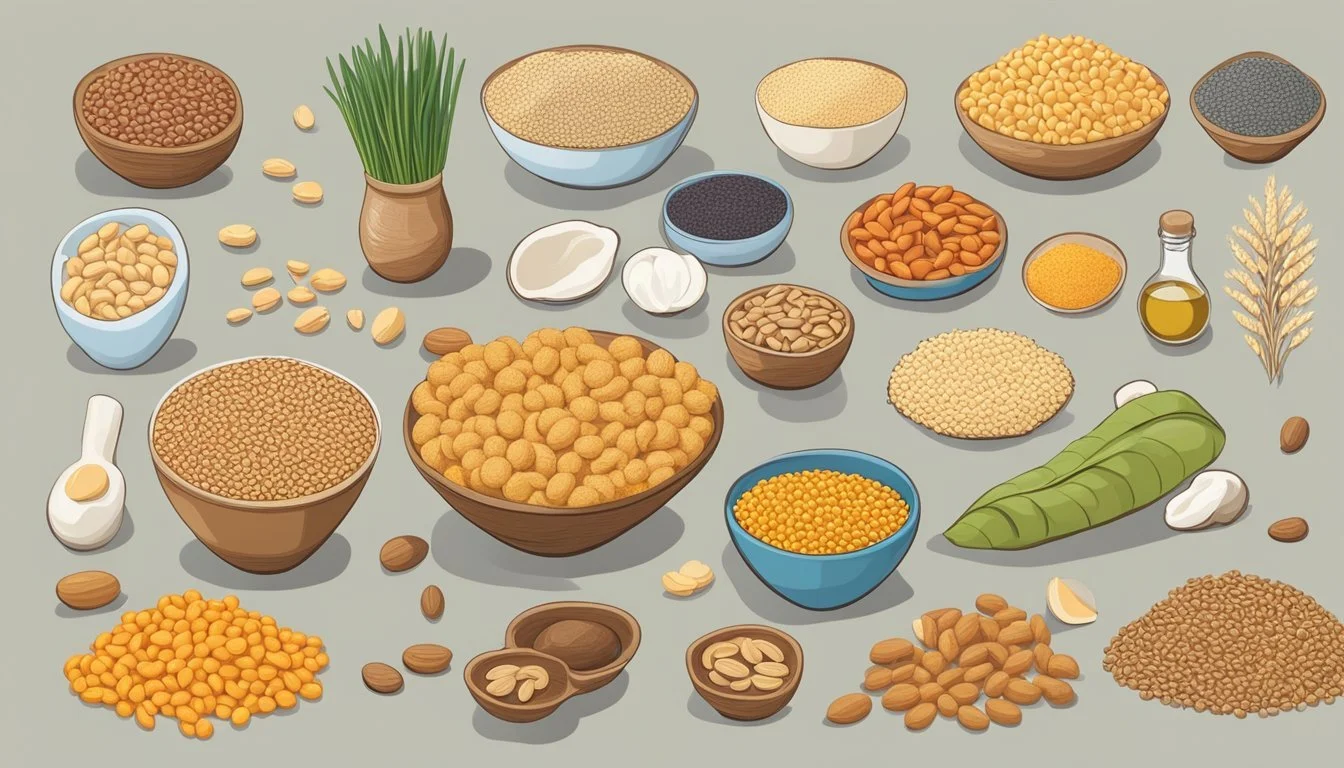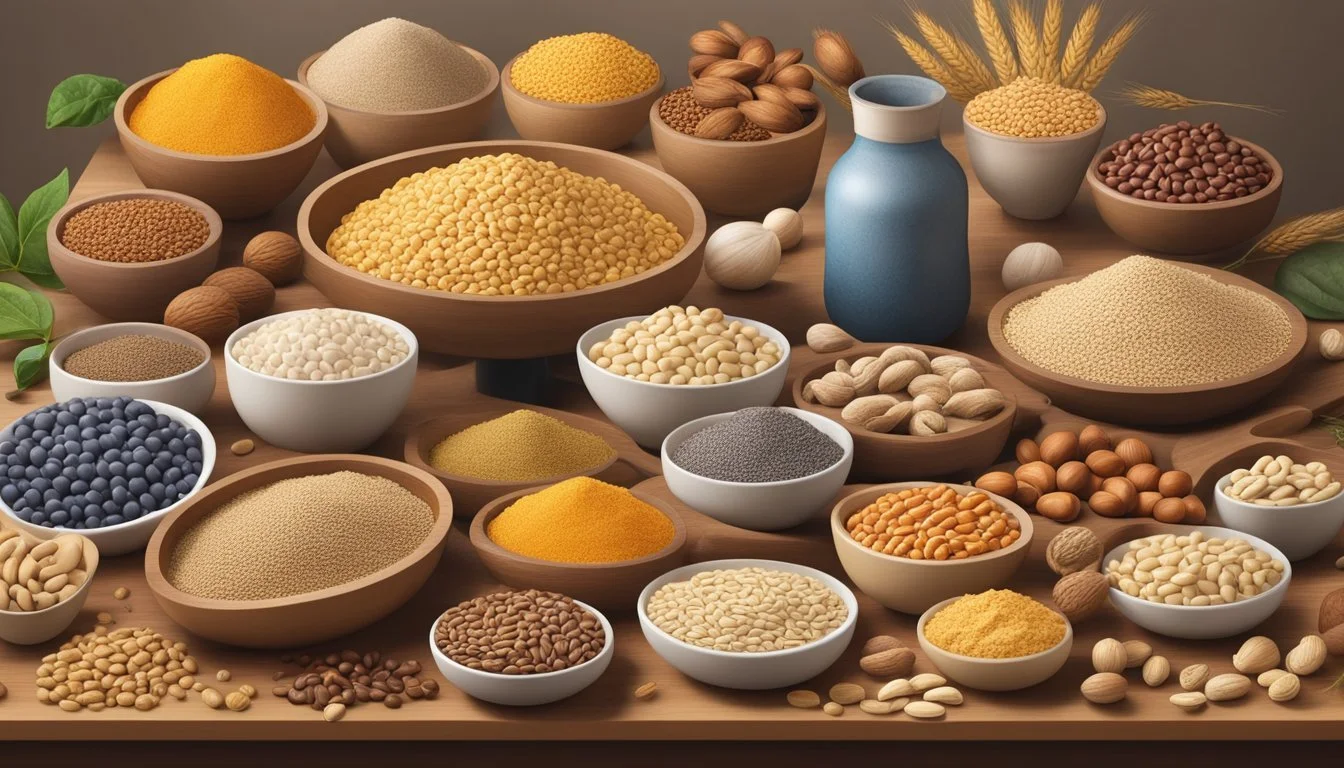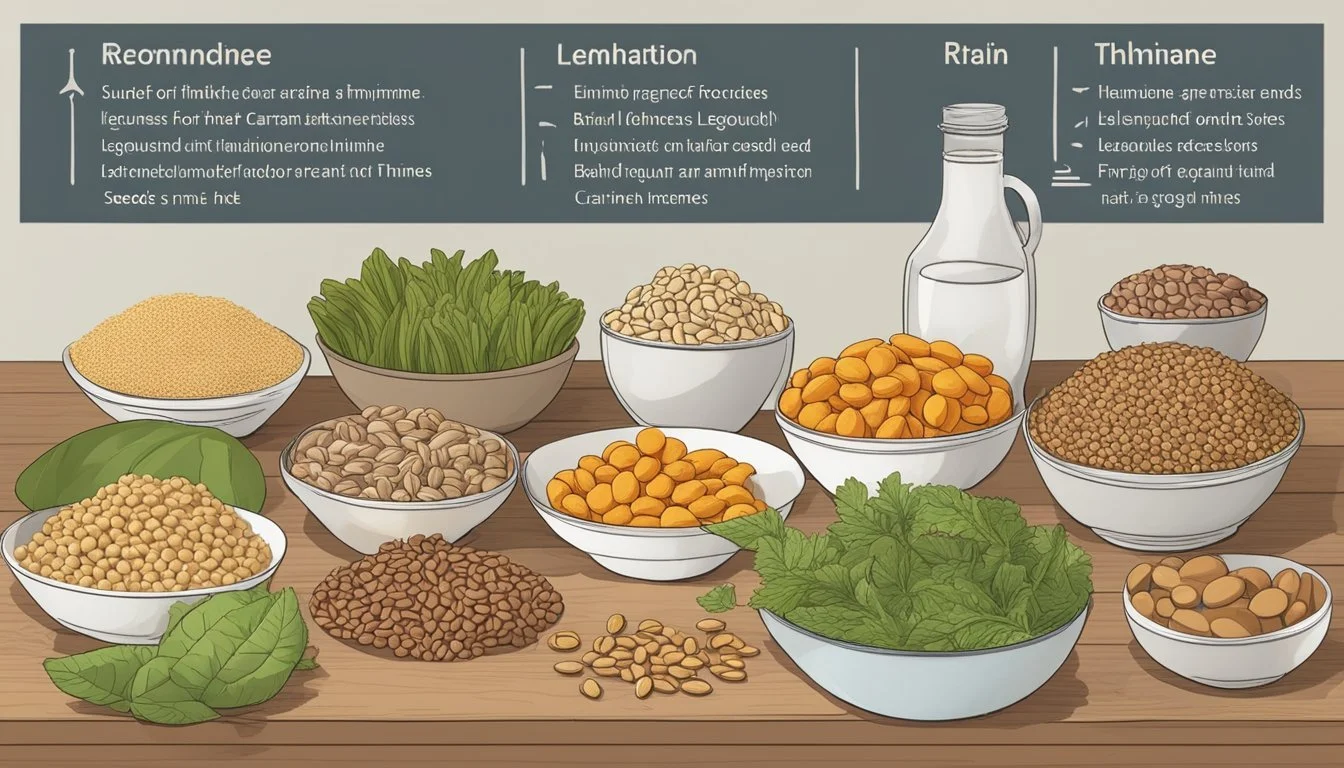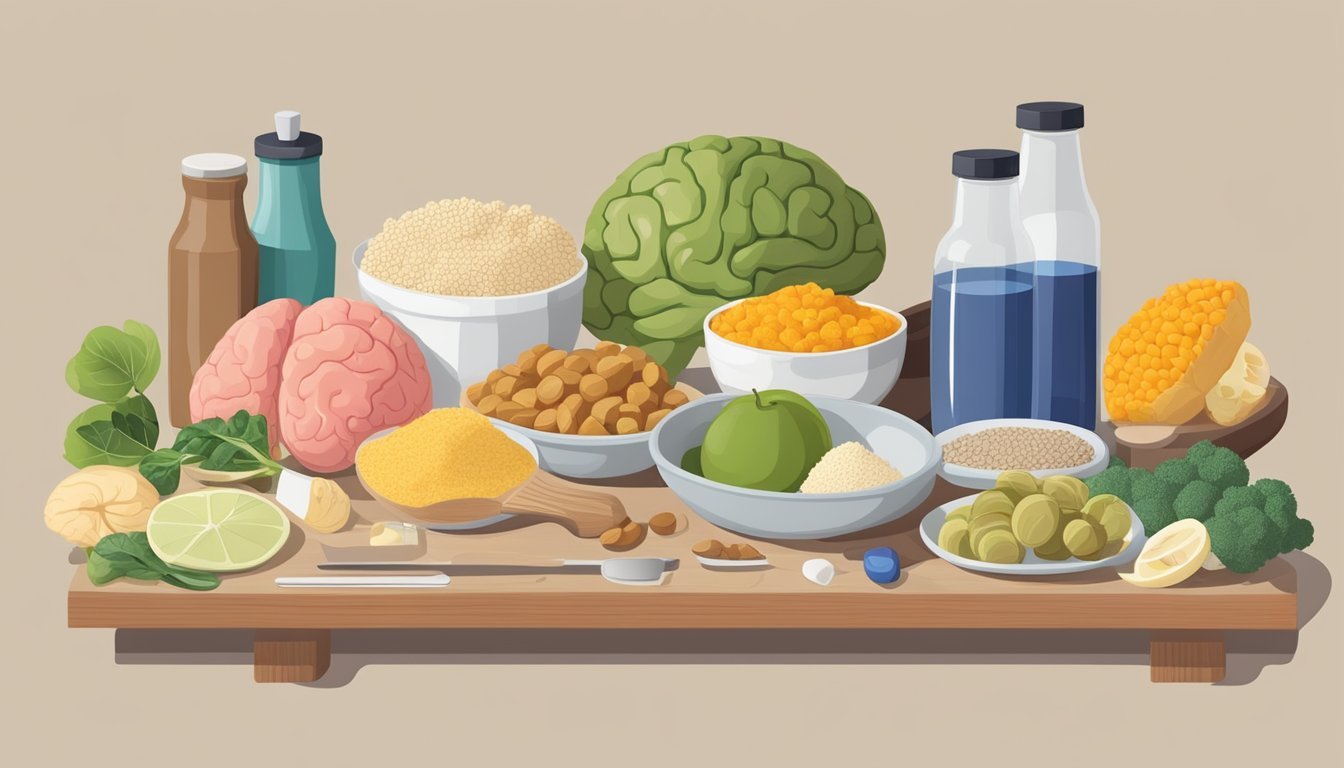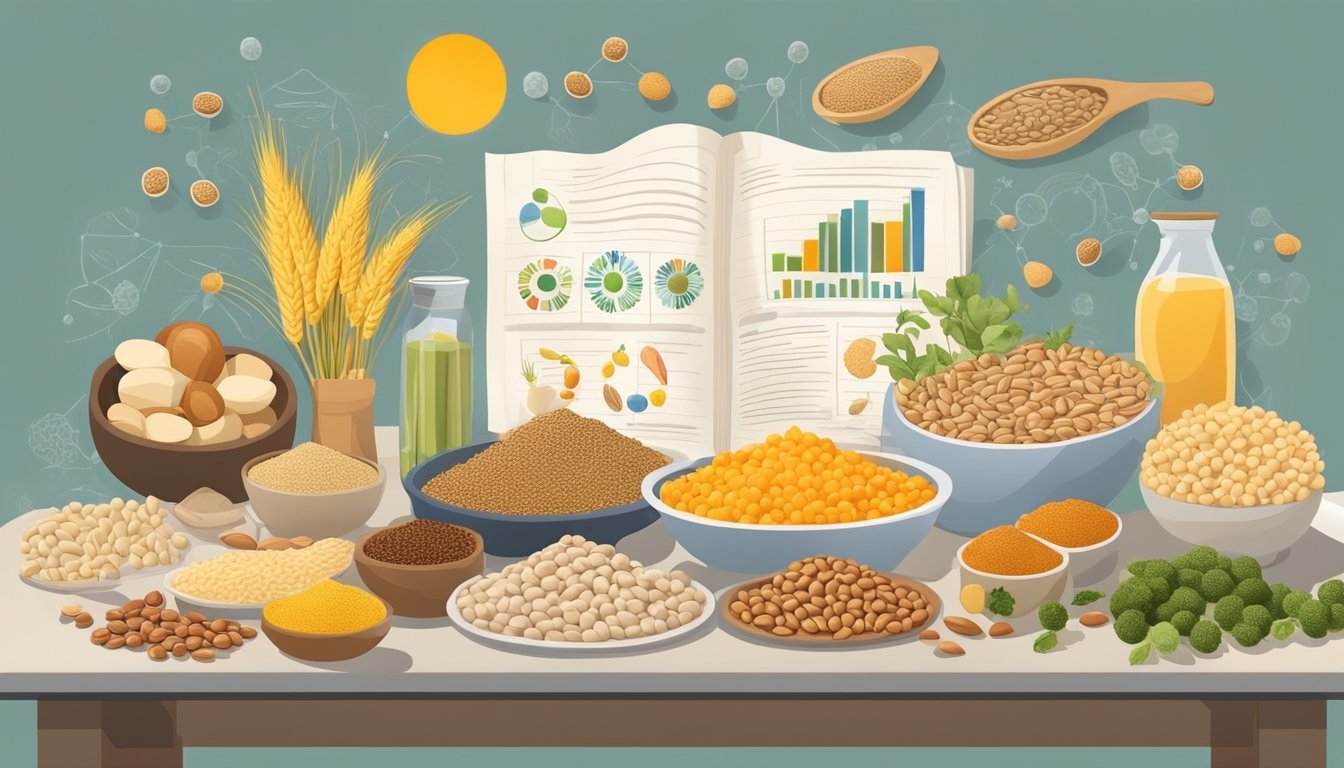How Much Thiamine-Rich Foods Are Necessary for Optimal Brain Function?
Thiamine, also known as vitamin B1, plays a crucial role in maintaining optimal brain health. It serves as an essential coenzyme in the metabolism of glucose, the primary source of energy for the brain, and supports the normal function of nerve cells. A deficiency in thiamine can lead to neurological problems, ranging from mild cognitive impairment to severe conditions like Wernicke-Korsakoff syndrome, which is characterized by confusion, memory loss, and reduced muscle coordination.
Despite its vital importance for brain function, the human body cannot synthesize thiamine and must obtain it from dietary sources. Thiamine is present in a variety of foods, including whole grains, meats like pork and poultry, legumes, nuts, and fortified cereals. The recommended daily intake varies based on age, sex, and health status, with increased requirements during periods of growth, pregnancy, breastfeeding, and for those with higher carbohydrate intake.
It is generally thought that adults should aim to consume around 1 mg of thiamine per day to support adequate brain function and overall health. This amount can usually be met through a balanced diet that includes thiamine-rich foods. Nonetheless, individuals with particular dietary restrictions, chronic health conditions, or those experiencing increased physiological stress may need to monitor their thiamine intake more closely to prevent deficiency and ensure their brain is well-nourished for optimal performance.
Understanding Thiamine
Before delving into the nuances of thiamine's role, it is integral to recognize this nutrient as a cornerstone for energy production and a critical player in maintaining optimal brain function.
Role of Thiamine in Brain Function
Thiamine, or vitamin B1, is a water-soluble vitamin crucial for brain function. This vitamin acts as a coenzyme in glucose metabolism, which is essential for producing cellular energy. Glucose is the primary fuel for the brain, and without thiamine, glucose cannot be efficiently converted into energy. Moreover, thiamine plays a pivotal role in the operation of the nervous system; it enhances nerve impulse transmission and is involved in the synthesis of the neurotransmitter acetylcholine, which is important for memory and cognitive function.
Daily Thiamine Requirements
The amount of thiamine a person needs daily hinges on several factors, including age, sex, health, and overall diet. However, on average, adults should aim for 1 milligram (mg) of thiamine per day. Pregnant or lactating individuals may have increased requirements. It's important to consume thiamine regularly as the body can store only small amounts, predominantly in the liver. A variety of thiamine-rich foods can fulfill these needs, such as:
Whole grains (e.g., brown rice)
Pork
Poultry
Legumes (e.g., peas, soybeans)
Seeds
Incorporating these foods into daily meals can help ensure adequate intake of thiamine for supporting brain functions and overall wellbeing.
Thiamine Sources
Thiamine, commonly known as vitamin B1, is essential for brain function and must be obtained through diet, as the body cannot produce it. Here are the types of foods and products that can provide the necessary thiamine.
Natural Food Sources
Thiamine is naturally present in a variety of foods. Key sources include:
Whole grains: such as brown rice and some cereals.
Meat: especially pork, which is a rich source.
Legumes: including beans and peas.
Nuts and seeds: a handful of which can contribute to daily intake.
Fish: certain types like trout contain significant amounts.
Vegetables: some such as asparagus and spinach.
Thiamine-Fortified Foods
Many foods are fortified with thiamine to help prevent deficiencies:
Cereals and breads: often have added thiamine.
Infant formulas: commonly fortified to support early growth.
Rice: particularly when it's white rice that has been processed.
Thiamine Supplements
When dietary intake is insufficient, thiamine supplements can be used:
Available in multivitamin/mineral products.
Sold as standalone supplements, in doses that can help meet the daily recommended intake.
Thiamine Deficiency
Thiamine, or vitamin B1, is crucial for brain function and energy metabolism. Deficiency can lead to severe neurological and cardiac complications.
Causes of Deficiency
Thiamine deficiency can occur when intake is insufficient, absorption is impaired, or excretion is excessive. Common causes include:
Inadequate Diet: Diets low in thiamine-rich foods, like whole grains and legumes.
Alcohol Abuse: Alcohol can reduce thiamine absorption and increase urinary excretion.
Chronic Illnesses: Conditions like HIV/AIDS or diabetes can impede thiamine absorption.
Prolonged Diuretic Use: This can increase the excretion of thiamine from the body.
Symptoms and Health Effects
A thiamine deficit can cause neurological and cardiovascular disorders. Symptoms of deficiency include:
Neurological: Confusion, muscle weakness, peripheral neuropathy, memory loss, and in severe cases, Wernicke-Korsakoff syndrome.
Cardiovascular: Congestive heart failure and edema are common in 'wet beriberi,' while 'dry beriberi' can cause neuropathy and muscle dysfunction.
At-Risk Populations
Certain groups may be more prone to thiamine deficiency:
Alcoholics: Due to poor dietary intake and decreased absorption.
People with Malabsorption Syndromes: Conditions like Crohn's disease can lead to deficiencies.
Individuals with Diabetes: Type 2 diabetes may be linked to low plasma thiamine concentration.
Patients on Long-term Diuretics: Risk of increased thiamine excretion.
People with Anorexia: Weight loss and poor nutrition can contribute to deficiency risks.
Recommended Intake
Thiamine is critical for overall brain function, and maintaining adequate levels is important for cognitive health. Here, the focus is on the recommended dietary allowance (RDA) to ensure optimal brain function across various demographics.
RDA for Different Demographics
Infants:
0-6 months: 0.2 mg/day (Adequate Intake)
7-12 months: 0.3 mg/day (Adequate Intake)
Children:
1-3 years: 0.5 mg/day
4-8 years: 0.6 mg/day
9-13 years: 0.9 mg/day
Teens:
Males 14-18 years: 1.2 mg/day
Females 14-18 years: 1.0 mg/day
Adults:
Men: 1.2 mg/day
Women: 1.1 mg/day
Pregnancy:
Pregnant women: 1.4 mg/day
Lactation:
Lactating women: 1.4 mg/day
It is imperative that these RDA levels are met daily, as the body does not store significant amounts of thiamine. A variety of foods can meet these requirements, including whole grains, pork, poultry, soybeans, nuts, and peas. It should be noted that the body's energy needs, particularly during periods like pregnancy and lactation, can affect thiamine requirements.
Implications of Excess Intake
While thiamine is crucial for brain function, it is important to consider the potential risks associated with excessive intake.
Thiamine Toxicity
Excessive consumption of thiamine can lead to toxicity, although it is extremely rare due to its water-soluble nature. The body typically excretes excess amounts in urine. However, if large doses are taken through supplements, side effects may occur. These can include:
Nausea
Headaches
Fatigue
Irritability
High doses might also cause dizziness and muscle relaxation. It's essential for individuals considering thiamine supplements to consult with healthcare professionals before starting any new supplementation regimen.
Integrating Thiamine into Your Diet
Thiamine is an essential nutrient that plays a crucial role in brain function and overall well-being. Ensuring adequate intake through diet or supplements is necessary for growth and development.
Dietary Strategies
One can meet their thiamine requirements through food sources. A balanced diet including a mix of whole grains, meat, fish, legumes, and seeds is effective for maintaining good thiamine levels. For instance, pork is remarkably high in thiamine; a 6-ounce pork chop contains approximately 1.1 milligrams or about 96% of the Daily Value (DV). Other thiamine-rich foods include:
Legumes such as black beans and lentils
Nuts and seeds, especially sunflower seeds
Whole grains like brown rice and barley
Fish such as trout and salmon
Vegetables; specifically, green peas and acorn squash, with a cup of cooked acorn squash providing about 29% of the DV
Incorporating these foods into daily meals ensures a steady supply of thiamine without the need for dietary supplements. However, certain groups, like pregnant women or those with higher energy needs, might require a tailored intake plan.
Assessing Thiamine Levels
It is pivotal for individuals to assess their thiamine levels, especially if they are at risk of a deficiency. Symptoms of a deficiency can include fatigue, confusion, and muscle weakness. A healthcare provider can determine thiamine levels and recommend a daily intake, which is typically around 1 milligram for healthy adults. According to dietary guidelines, the following is the advised daily intake of thiamine:
Men: 1.2 milligrams
Women: 1.1 milligrams
Pregnant Women: Up to 1.4 milligrams
For those unable to meet thiamine requirements through diet alone, a doctor may suggest a dietary supplement. This is often in the form of thiamine hydrochloride or thiamine mononitrate, available in various milligrams to suit individual needs.
Interactions with Health Conditions and Medications
Thiamine is essential for glucose metabolism, and its adequacy in the diet is crucial, particularly in individuals with certain health conditions or those on specific medications.
Health Conditions Related to Thiamine Intake
Diabetes: Patients with diabetes may have an increased need for thiamine. Since thiamine plays a vital role in glucose metabolism, a deficiency can exacerbate issues with blood sugar control.
HIV/AIDS: Those living with HIV/AIDS can experience higher nutritional deficiencies, including thiamine. Due to potential complications and increased oxidative stress, ensuring adequate thiamine intake is important.
Bariatric Surgery: Post-bariatric surgery patients are at risk for thiamine deficiency due to altered dietary intake and absorption. Monitoring and supplementing thiamine, as necessary, is critical to prevent neurological and other complications.
Medication Interactions
Diuretics: Diuretic medications, especially loop diuretics, can lead to increased urinary excretion of thiamine, potentially causing or exacerbating a deficiency.
Fluorouracil: As an anticancer drug, fluorouracil can influence thiamine metabolism, and supplementation might be required to prevent deficiency during treatment.
Antiepileptic Medications: Certain antiepileptic drugs have been shown to decrease serum thiamine levels, making monitoring and possible supplementation important for patients on these medications.
Conclusion
Thiamine, or vitamin B1, plays an indispensable role in maintaining brain function, as it is a crucial cofactor in cellular energy metabolism. Sufficient intake of thiamine-rich foods is necessary for cognitive activities, supporting neuron function, and overall brain health. The National Institutes of Health's Office of Dietary Supplements provides guidelines on recommended dietary allowances (RDAs), which individuals should consult to understand their specific requirements.
Dietary Sources: Consuming a varied diet that incorporates whole grains, legumes, seeds, and fortified foods will help achieve the necessary thiamine intake. Common food sources include:
Grains: enriched cereals, brown rice, and whole grain bread
Proteins: tuna (What wine goes well with tuna?), pork, and poultry
Legumes: lentils, black beans, and other beans
Seeds: sunflower seeds
Eggs: a moderate source of thiamine
Fortification: Many cereal products, such as bread and flour, are fortified with thiamine, making it easier to meet the RDA.
Supplementation: In cases where dietary intake may be insufficient, micronutrient supplements, including multivitamins, might be taken under medical advice. It's essential for individuals to consult with a physician before starting any supplementation to ensure they address their dietary needs without exceeding the safe intake levels.
Integrating Thiamine in Daily Diet:
Meal Time Suggested Foods Breakfast Fortified cereals with milk Lunch Tuna sandwich on whole grain bread Snack Sunflower seeds or boiled eggs Dinner Lentils or black beans as a side dish
In summary, incorporating varied thiamine-rich foods into one's daily diet supports optimal brain function. One should consistently monitor their intake, considering the guidance of healthcare professionals as necessary, especially when using supplements. It is vital for individuals to recognize the importance of thiamine in their diet, not only for brain function but for overall health as well.

